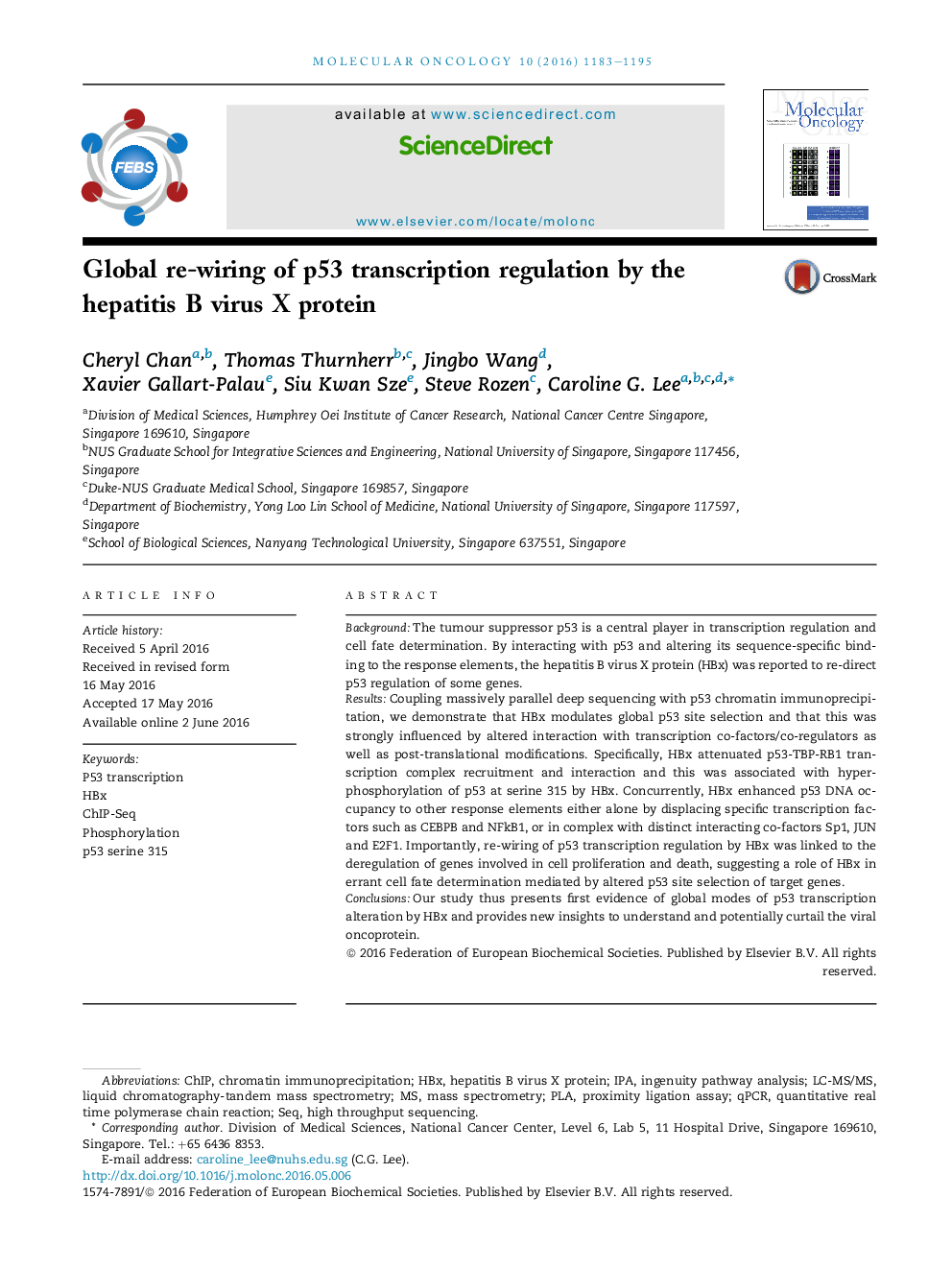| Article ID | Journal | Published Year | Pages | File Type |
|---|---|---|---|---|
| 5528630 | Molecular Oncology | 2016 | 13 Pages |
â¢HBx deregulates p53 genes by modulating global p53 site selection.â¢HBx modulates p53 genes by altering its interaction with transcription cofactors.â¢HBx modulates p53 genes through post-translational modifications.â¢HBx rewires p53 transcription to deregulate proliferation and death genes.
BackgroundThe tumour suppressor p53 is a central player in transcription regulation and cell fate determination. By interacting with p53 and altering its sequence-specific binding to the response elements, the hepatitis B virus X protein (HBx) was reported to re-direct p53 regulation of some genes.ResultsCoupling massively parallel deep sequencing with p53 chromatin immunoprecipitation, we demonstrate that HBx modulates global p53 site selection and that this was strongly influenced by altered interaction with transcription co-factors/co-regulators as well as post-translational modifications. Specifically, HBx attenuated p53-TBP-RB1 transcription complex recruitment and interaction and this was associated with hyper-phosphorylation of p53 at serine 315 by HBx. Concurrently, HBx enhanced p53 DNA occupancy to other response elements either alone by displacing specific transcription factors such as CEBPB and NFkB1, or in complex with distinct interacting co-factors Sp1, JUN and E2F1. Importantly, re-wiring of p53 transcription regulation by HBx was linked to the deregulation of genes involved in cell proliferation and death, suggesting a role of HBx in errant cell fate determination mediated by altered p53 site selection of target genes.ConclusionsOur study thus presents first evidence of global modes of p53 transcription alteration by HBx and provides new insights to understand and potentially curtail the viral oncoprotein.
